An ecosystem is a delicate balance of various living organisms and their surrounding environment, which support life on Earth. Preserving and maintaining ecosystems is crucial for the wellbeing of both the natural world and human society. We can preserve and enhance local ecosystems by taking proactive steps in our local surroundings. In this article, we will explore effective ways to maintain the ecosystems in our surrounding area and protect our local environment.
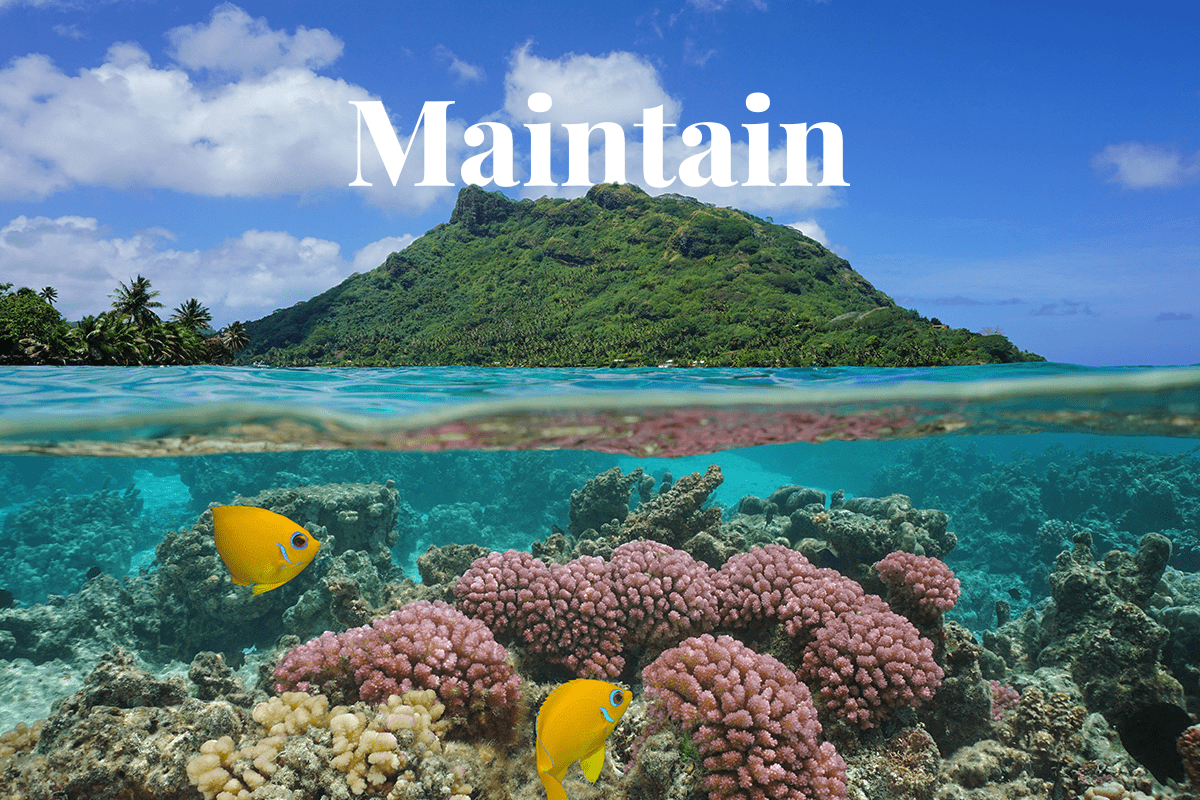 Landscape of Huahine island with coral and tropical fish underwater, Pacific Ocean, French Polynesia.
Landscape of Huahine island with coral and tropical fish underwater, Pacific Ocean, French Polynesia.
Maintaining a healthy ecosystem in our surroundings is vital for the sustainability and overall wellbeing of our environment and society. It ensures the continued productivity and resilience of ecosystems, providing essential services such as clean air, fresh water, and food. By actively engaging in ecosystem management and conservation, we can make a positive impact on our immediate environment and contribute to the larger goal of preserving biodiversity on a global scale.
Understanding ecosystems
Before we delve into the actions we can take to maintain ecosystems, it's important to understand what ecosystems are and how they function. Ecosystems are complex networks of living organisms, including plants, animals, and microorganisms, interacting with their physical environment. These interactions create a web of relationships that sustains life and maintains the balance of nature. By understanding the interconnectedness of species and their environment, we can appreciate the significance of maintaining healthy ecosystems.
The importance of maintaining ecosystems
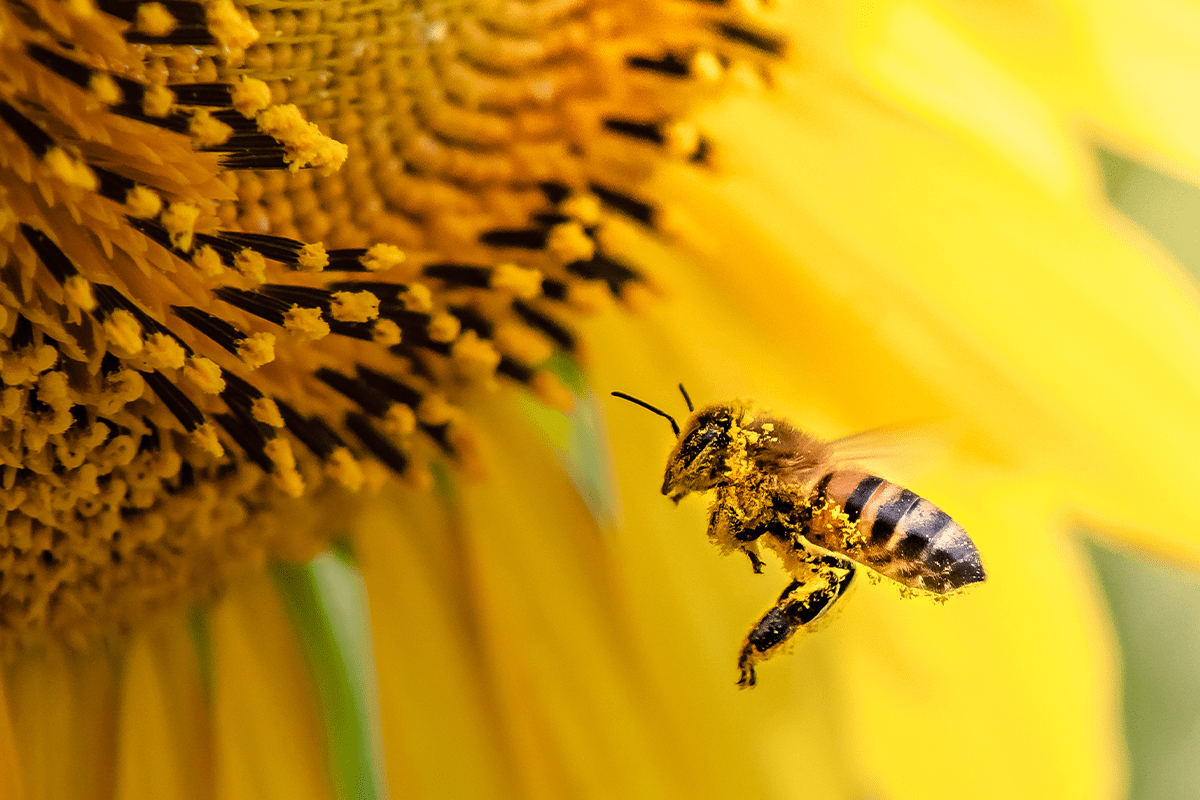 Honey bee pollinating a sunflower plant.
Honey bee pollinating a sunflower plant.
Maintaining ecosystems is crucial for several reasons. Firstly, healthy ecosystems support Biodiversity, which is essential for the survival of various species and the overall stability of ecosystems. Biodiversity ensures that ecosystems have the resilience to withstand disturbances and adapt to changes in their environment. Additionally, ecosystems provide valuable ecosystem services such as pollination, nutrient cycling, and water purification. By maintaining ecosystems, we safeguard these services and promote a sustainable future for ourselves and future generations.
Read more: 10 Vital ecosystem services: sustaining life on Earth
You can maintain the ecosystems in your surrounding area in 8 easy ways
1. Promoting biodiversity in your surroundings
One of the key ways to maintain ecosystems is by promoting biodiversity in our surrounding area. Biodiversity refers to the variety of species, genes, and ecosystems present in a given area. You can support biodiversity by:
-
Planting native species: Choose native plants when landscaping your surroundings. Native plants provide food and habitat for local wildlife and are adapted to the local climate and soil conditions.
-
Creating wildlife-friendly spaces: Set up bird feeders, birdhouses, and nesting areas for various wildlife species. Create water sources like bird baths for small ponds to attract diverse wildlife.
- Avoiding the use of pesticides: Minimise or eliminate the use of pesticides. Pesticides can harm beneficial insects and disrupt the delicate balance of ecosystems.
Read more: Reforestation: 10 amazing benefits of planting trees
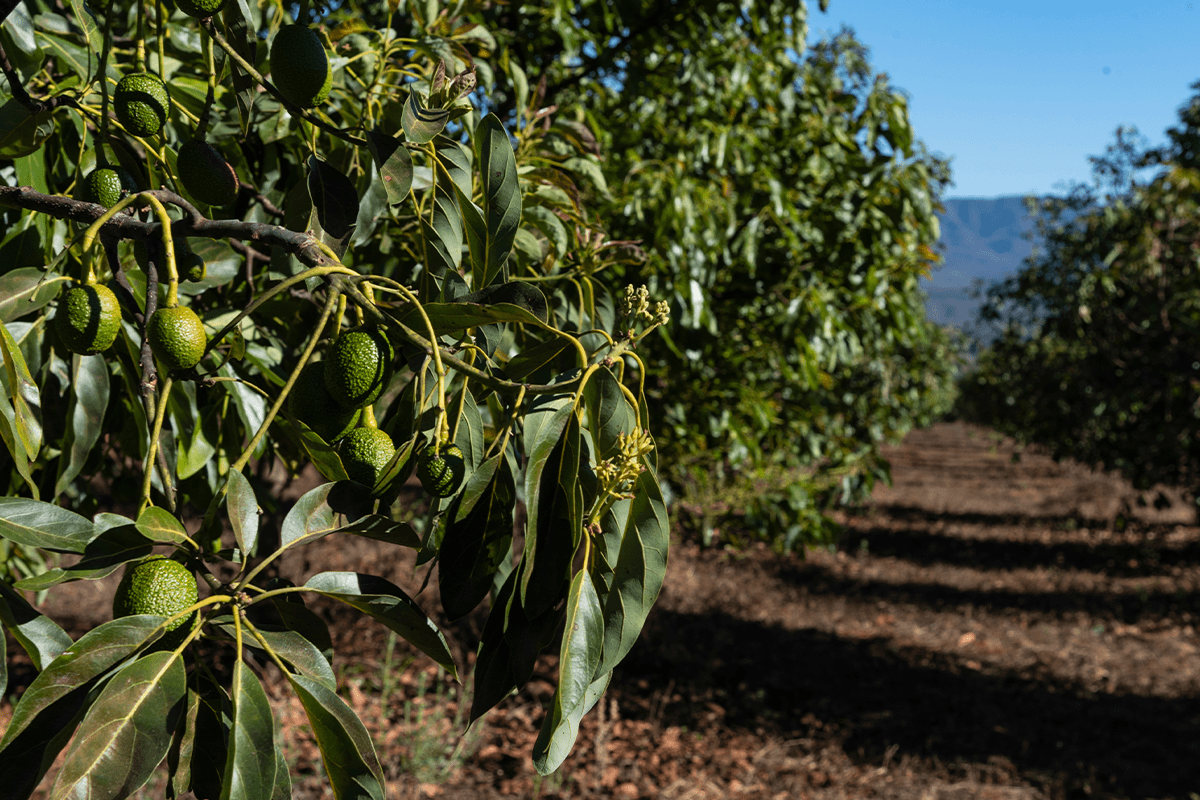 Avocado orchard.
Avocado orchard.
2. Conserving water resources
Water is a vital resource for all living organisms, and conserving water is crucial for maintaining ecosystems. Here are some ways you can conserve water in your surroundings:
-
Fix leaks: Check for and repair any leaks in plumbing fixtures, faucets, or irrigation systems. Even a small leak can waste a significant amount of water over time.
-
Water-efficient landscaping: Use drought-tolerant plants in your surroundings, and consider installing a rainwater harvesting system to collect and reuse rainwater for irrigation purposes. Also, be sure of your plant's watering needs and avoid over-watering.
Read more: Dry farming: growing crops without irrigation
-
Responsible water usage: Be mindful of your water consumption habits. Promote efficient water usage at home and in the office, turn off the tap while brushing your teeth, take shorter showers, avoid overwatering gardens, and use shorter wash cycles on washing machines.
Read more: 10 Agricultural techniques for water conservation
3. Proper waste management
Effective waste management is essential to prevent pollution and maintain a clean environment. Consider the following waste management practices:
-
Reduce, reuse, recycle: Practise the 3R principle by reducing waste generation, reusing items whenever possible, and recycling materials such as paper, plastic, glass, and metal.
-
Composting: Compost organic waste like food scraps and yard trimmings. Composting not only reduces waste but also provides nutrient-rich soil for your garden.
-
Responsible disposal: Dispose of hazardous materials, such as batteries and chemicals, at designated collection points to prevent environmental contamination.
Read more: Reduce, reuse, recycle: 7 ways for businesses to reduce waste
4. Supporting local environmental organisations
Engaging with local environmental organisations is an effective way to contribute to ecosystem maintenance. These organisations work towards conservation efforts, raise awareness, and implement initiatives to protect and restore ecosystems. You can support them by:
-
Volunteering your time: Offer your skills, time, or resources to local environmental organisations. They often organise events, campaigns, and restoration projects that rely on community participation.
-
Donating or fundraising: Financial contributions help environmental organisations continue their important work. Consider donating or organising fundraising events to support their initiatives. Businesses can also invest in green initiatives, thereby helping the environment whilst boosting their reputation and sustainability.
Explore the benefits of green investing
5. Engaging in restoration projects
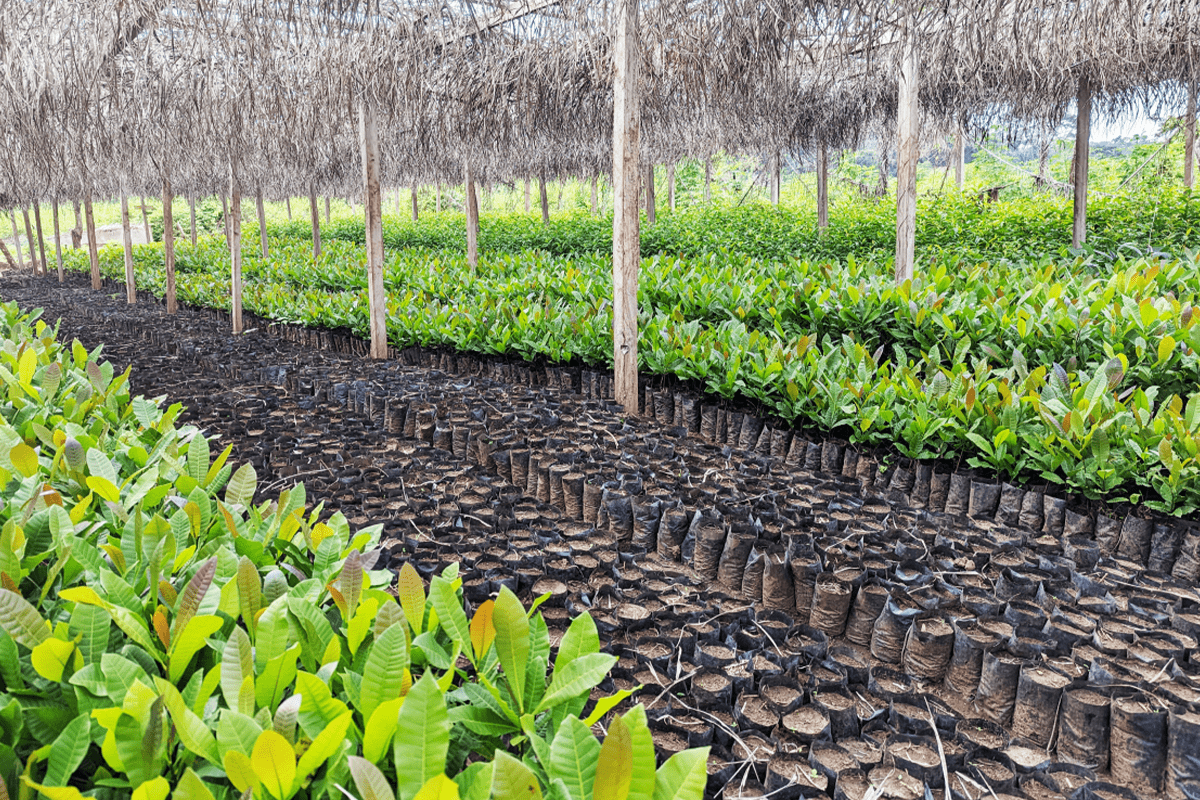 Tree nursery - Greenzone Afforestation Project, Cameroon, DGB.
Tree nursery - Greenzone Afforestation Project, Cameroon, DGB.
Participating in ecosystem restoration projects like those of like DGB Group allows you to actively contribute to the rehabilitation of degraded habitats. Restoration projects aim to enhance ecological integrity and improve the wellbeing of both ecosystems and local communities. Some restoration project options include:
-
Tree planting initiatives: Join tree planting activities in your local area or subscribe to DGB's tree planting initiatives that plant trees for you, especially in areas affected by deforestation or habitat loss. Trees play a crucial role in carbon sequestration and provide habitat for various species. With our tree-planting subscription, you can plant any amount of trees you want in areas where they are needed most with just a few clicks.
Start planting trees today
-
Investing in green bonds: Green bonds are financial instruments that fund green initiatives like nature restoration. DGB's nature-based projects are powered by our green bonds. Our projects restore nature at scale whilst helping local communities with efficient stoves, job creation, and training, to name just a few benefits. With our green bonds, you can earn an attractive return of up to 8% on investment while also helping to restore nature.
Find out more about our green bonds
-
Forest restoration through carbon credits: Forests are biodiversity hotspots and provide valuable services like water filtration and flood mitigation. Participate in forest restoration projects to revive and protect these important ecosystems through carbon credits. Carbon credits represent a reduction in carbon emissions and are used to offset and reduce your carbon footprint. In addition, they support projects that sequester carbon and offer many additional environmental and socio-economic benefits. They therefore not only help you positively impact the environment by reducing your emissions, they also benefit ecosystems and local communities.
Find out more about our verified carbon credits
6. Educating and raising awareness
Education and awareness play a pivotal role in maintaining ecosystems. By educating ourselves and others, we can foster a sense of responsibility and inspire action. Consider the following:
-
Stay informed: Keep yourself updated on environmental issues, conservation practices, and scientific advancements related to ecosystems. Subscribe to newsletters with news about the industry.
-
Share knowledge: Raise awareness among your employees, co-workers, family, friends, and community about the importance of maintaining ecosystems and the actions they can take.
-
Engage in environmental education programmes: Support or participate in local environmental education initiatives that promote ecological literacy and provide training to local communities on matters such as sustainable farming.
Learn how DGB’s projects positively affect communities
7. Protecting wildlife
Protecting wildlife is an integral part of maintaining ecosystems. Every species contributes to the balance and functionality of an ecosystem. Here's what you can do to protect wildlife:
-
Respect wildlife habitats: Avoid disturbing or destroying habitats, especially during nesting or breeding seasons. Support wildlife conservation projects like DGB's Bulindi Chimpanzees Habitat Restoration Project.
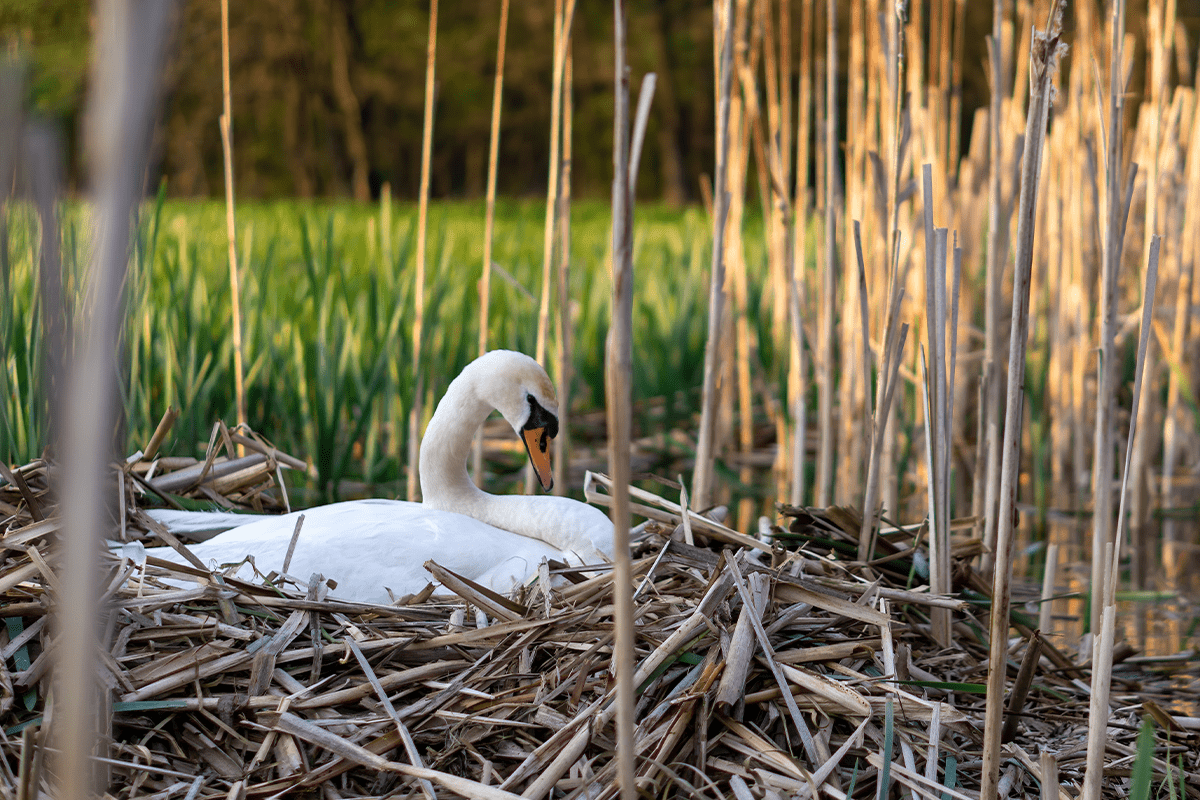 Swan sitting in a nest.
Swan sitting in a nest.
-
Prevent wildlife trafficking: Report any instances of illegal wildlife trade or poaching to the appropriate authorities. Don’t support wildlife-exploitation activities such as roadside zoos, circuses with wild animals, and petting of wildlife cubs such as tigers and lions.
-
Encourage responsible pet ownership: Ensure your pets do not harm or disturb wildlife and keep them away from protected areas.
Read more: 7 Strategies for protecting wildlife
8. Sustainable land-use practices
Practising sustainable land use is essential for maintaining ecosystems. Consider the following sustainable land-use practices:
-
Sustainable agriculture: Use sustainable farming techniques on your farm or support local farmers who practise sustainable farming methods that prioritise soil health, biodiversity, and water conservation.
-
Responsible land development: Encourage responsible land development practices that minimise habitat destruction and prioritise conservation areas.
-
Land restoration: Promote land restoration efforts in degraded areas, such as reforestation, afforestation, soil rehabilitation, and habitat restoration.
Read more: What is sustainable land management?
Take action to protect your environment
Maintaining the ecosystems in our surrounding area is a collective responsibility that requires individual and community actions. By promoting biodiversity, conserving water, managing waste responsibly, supporting local environmental organisations, engaging in restoration projects, educating and raising awareness, protecting wildlife, and practising sustainable land use, we can contribute to preserving and enhancing local ecosystems. So, let's take proactive steps today to ensure a sustainable and thriving environment for future generations.
At DGB, our commitment to conserving nature and fostering biodiversity will continue to drive our value proposition and contribute to a sustainable future for all. We believe in the power of nature and the essential function of biodiversity to support all life on Earth. That is why we are dedicated to promoting biodiversity and conservation through our nature-based projects and tree-planting initiatives. Our projects are designed to promote healthy, thriving ecosystems, and we work with farmers, landowners, local communities, and conservation organisations to make this a reality. By working together and taking steps in our local area, we can ensure a biodiverse, healthy world. You can make an impact and contribute to a greener, more sustainable future for all. Join us on this vital mission and make your impact today.
Frequently asked questions
FAQ 1: Why is it important to maintain ecosystems?
Maintaining ecosystems is crucial because they provide essential services, support biodiversity, and contribute to the overall health and wellbeing of the environment and human society. By maintaining ecosystems, we can ensure the continued provision of clean air, water, and food and promote a sustainable future.
FAQ 2: How can I conserve water in my surroundings?
You can conserve water in your surroundings by fixing leaks, using water-efficient landscaping, and practising responsible water usage, such as using shorter machine washing cycles, turning off the tap while brushing your teeth, and taking shorter showers.
FAQ 3: What are some restoration projects I can join?
You can join restoration projects such as tree planting services or forest restoration projects in your surroundings. These projects aim to enhance ecosystem health and resilience.
FAQ 4: What can I do to protect wildlife in my area?
To protect wildlife in your area, you can respect wildlife habitats, report instances of illegal wildlife trade or poaching, not support wildlife-exploitation activities, and encourage responsible pet ownership.









